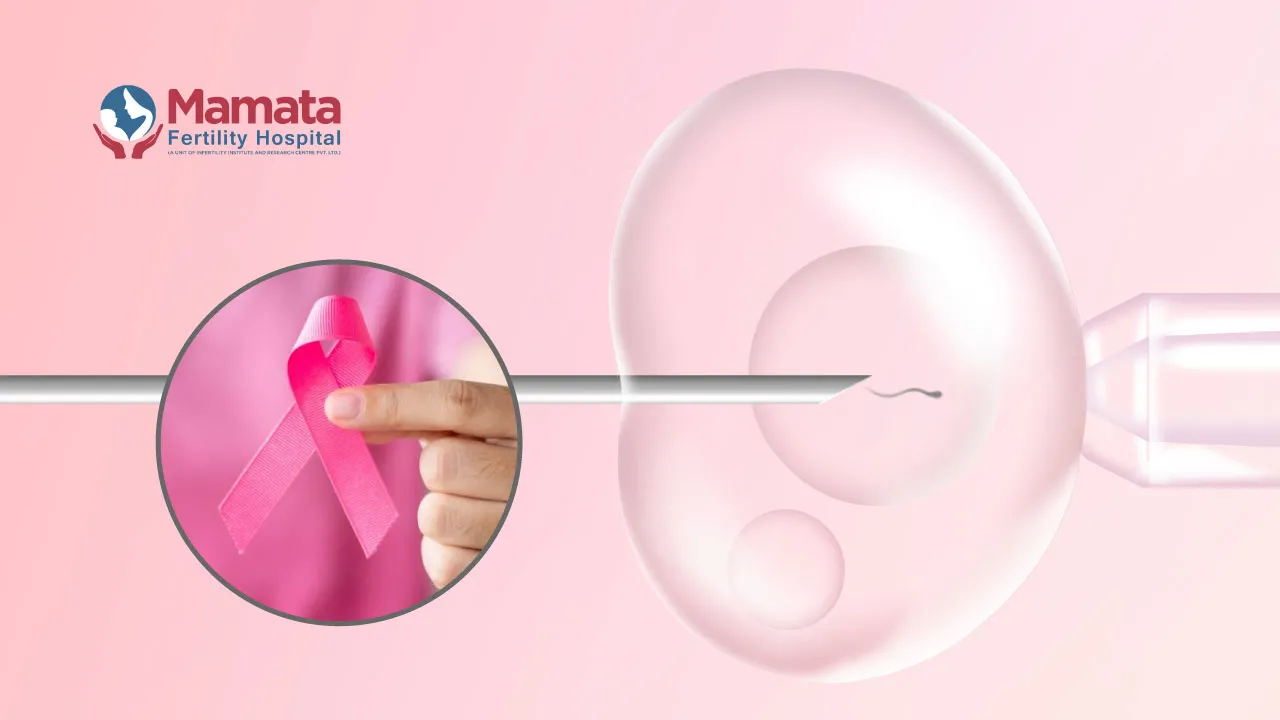IVF (in-vitro fertilisation) has become a beacon of hope for millions of couples struggling with infertility. With advancements in medical science and increasing awareness, it is now a widely chosen fertility treatment across the globe. However, as this procedure gains popularity, many couples question its long-term effects, with some wondering whether IVF could be linked to cancer.
This post will explore the potential link between IVF and cancer, what current research says, and how couples can make informed decisions about their fertility treatments.
Understanding the Link Between IVF and Cancer
How Does IVF Work?
IVF involves several steps designed to help individuals or couples conceive. The process starts with hormone injections to stimulate the ovaries, prompting the development of multiple eggs rather than the single egg usually released each month. Once the eggs are retrieved, they are fertilised in a laboratory with sperm, and one or more fertilised embryos are transferred to the uterus.
Throughout this process, different hormones are either administered (like oestrogen and progesterone) or naturally elevated, which has led to concerns about potential hormonal imbalances and their implications for health.
Types of Cancer Possibly Linked to IVF
Breast Cancer
Hormonal fluctuations during IVF cycles have led researchers to investigate a possible link between IVF and breast cancer. Breast cancer is sensitive to hormones like oestrogen, and the elevated levels during fertility treatments may, theoretically, play a role. However, a meta-analysis in The BMJ (2020) concluded that IVF does not significantly increase breast cancer risk above baseline levels.
Ovarian Cancer
The relationship between IVF and ovarian cancer has been more closely studied due to the procedure’s direct stimulation of the ovaries. While earlier studies suggested a slight increase in risk, recent research shows that any rise in risk can largely be attributed to pre-existing factors, such as the presence of infertility itself rather than the IVF hormones.
Endometrial Cancer
Similar to ovarian and breast cancer, endometrial cancer has long been suspected of being linked to fertility treatment. However, most current studies indicate that the risk remains low, and any observed patterns are inconclusive at best.
While these findings are reassuring, they highlight the need for further long-term research to fully understand IVF’s role, if any, in cancer development.
Factors Affecting the Risk
Cancer, in any context, is rarely caused by a single factor, and IVF is no exception. A range of considerations could influence whether IVF impacts an individual’s overall cancer risk.
1. Age at Treatment
Women undergoing IVF in their 30s or 40s may naturally face a higher baseline risk of certain cancers due to age. This makes it difficult to isolate IVF as a contributing factor.
2. Number of IVF Cycles
Some studies have suggested that undergoing multiple IVF cycles may slightly raise the risk of ovarian cancer. However, this is a debated topic that requires more clinical evidence.
3. Underlying Health Conditions
Women with conditions such as polycystic ovary syndrome (PCOS) may have pre-existing risks for certain cancers, which could compound during IVF treatments. This underscores the importance of a comprehensive health assessment before embarking on fertility care.
Expert Insights
Leading fertility specialists, like those at Mamata Fertility Specialist Hospital in Hyderabad, stress that most scientific evidence does not suggest a direct link between IVF and cancer. Dr. Mamata, a renowned fertility specialist in Hyderabad, explains that the fertility drugs used in IVF have been rigorously studied and approved for safe use globally. Still, individual patients should factor in their clear and detailed medical history and consult with healthcare providers before undergoing treatment.
Experts recommend adopting a personalised approach. By reviewing your family history, pre-existing conditions, and additional risks, fertility specialists can guide you to make the safest medical decisions possible.
Managing the Risks
While research portrays IVF as a safe treatment for the majority of patients, there are steps you can take to minimise any potential risks and maintain overall health during and after IVF cycles.
1. Work with the Right Specialist
Partnering with a trusted fertility centre—like the Mamata Fertility Specialist Hospital—ensures you’re receiving care from experienced professionals who adhere to modern research-backed practices.
2. Schedule Regular Screenings
Ensure that you undergo routine screenings for breast, ovarian, and other cancers before, during, and after fertility treatments. These exams can provide peace of mind and catch any issues early.
3. Adopt a Healthy Lifestyle
- Maintain a balanced diet.
- Commit to regular physical activity.
- Limit alcohol and avoid smoking.
These habits can strengthen your immune system and lower your overall cancer risk.
4. Understand Your Risk Factors
Undergo a detailed consultation to identify any pre-existing health conditions or lifestyle risks that might influence how your body responds to IVF treatments.
Take Charge of Your Health
IVF is a life-changing medical advancement that offers the road to parenthood for millions of families. While concerns around its potential cancer risks are valid, the majority of current research suggests that IVF is not associated with a significant cancer risk for most patients. Understanding the nuances, staying informed, and working closely with trusted fertility specialists, particularly at facilities like Mamata Fertility Specialist Hospital, empowers you to make decisions that benefit both your dreams and your health.
If you’re considering IVF or have further concerns, reach out to an experienced fertility specialist in Hyderabad or your local area for guidance tailored to your unique circumstances. Making informed choices with the help of healthcare professionals is the first step toward achieving your goal of parenthood.




